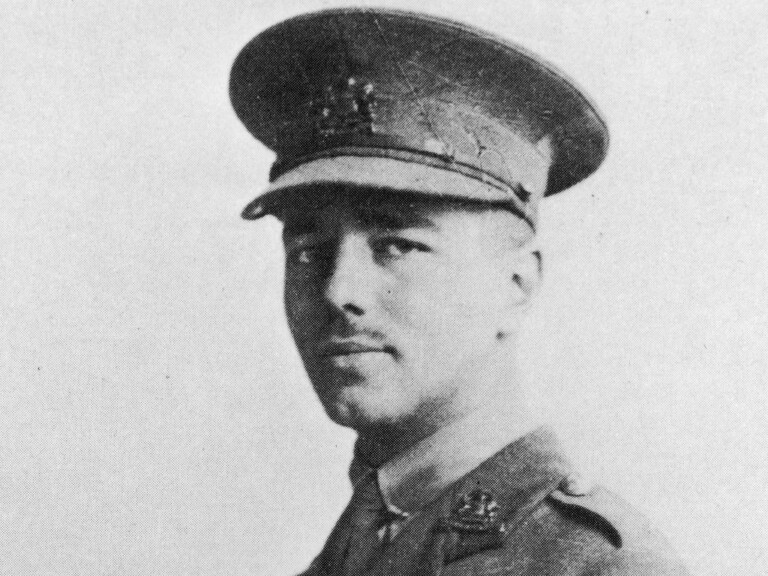Biography
Wilfried Owen was born in the West of England and educated in a technical college. He left England in 1913 to teach English in Bordeaux (France) and came back in 1915 to enlist.
He was soon commissioned and injured in March 1917. He was sent to Craiglockheart where he met Wilfried Sassoon. Returned to the Front in 1918 and was killed one week before the end of the war.
Owen found his own voice in the trenches, although he began writing poetry at an early age. Most of his poems were written between Summer 1917 and Autumn 1918. Only 5 of his poems were published in his lifetime.
His reputation slowly grew and now, he is regarded as a first-rank War poet, wooed for his bleak realism, his energy, his compassion, his high technical skills.
Two poets influenced Owen: Keats and Sassoon. The War had a very important impact on the quality of his verse.
What is remarkable is how he developed from an imitator of Keats to a major War poet. His meeting with Sassoon played a great key role too.
In Regeneration by Pat Barker, Sassoon encourages Owen to write poetry and says: “Sweat your guts writing poetry”.
Hence, in Owen’s poetry, the two influences are used:
- the Keatian influence, visible in word music and lyric strain: the delightened competence in sound effect and rhythm, the use Owen makes of color, his determination to see beauty.
- the Sassonian influence in Owen’s irony and realism : anger and ironic contrast, number of themes (eg: theme of “Disabled”). Owen adds a cosmic dimension thanks to Sassoon’s themes.
Pity is a key word in Owen’s poetry:
“Above all I’m not concerned with Poetry, my subject
is War and the pity of War. The Poetry is the pity.”

